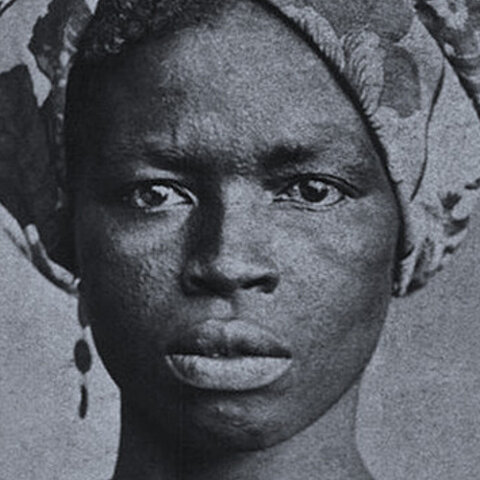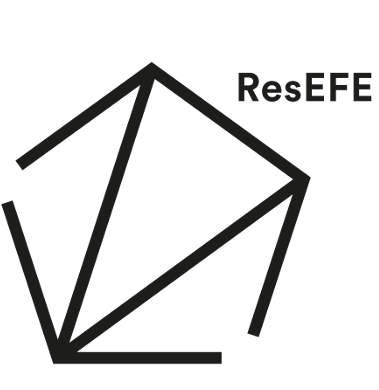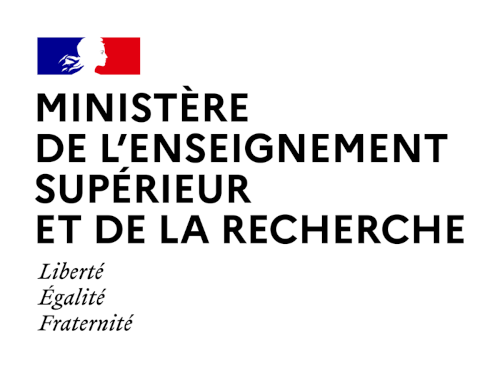Convenors: Ângela BARRETO XAVIER (Instituto de Ciências Sociais da Universidade de Lisboa), Michel CAHEN (EHEHI - Casa de Velázquez / Sciences Po Bordeaux), António CORREIA DA SILVA (Université du Cap-Vert), Cristina NOGUEIRA DA SILVA (Universidade Nova de Lisboa)
Organisation: Instituto de Ciencias Sociais da Universidade de Lisboa « Groupe de recherche sur les Empires, le colonialisme et les sociétés post-coloniales », École des hautes études hispaniques et ibériques (Casa de Velázquez, Madrid)
Dates: 2-3 July 2018
Location:
Instituto de Ciências Sociais da Universidade de Lisboa
Lisbon, Portugal (www.ics.ul.pt)
An abstract of not more than 250 words, along with a brief description of the applicant’s current project and research interests may be sent by email to: subjectividadesescravas@gmail.com
Calendar:
Deadline for submission of paper proposals (abstracts): 31st October 2017
Selection of paper proposals and communication to participants: 20 November 2017
Pre-circulation of summary papers to discussants: 30 May 2018
Working languages: English, Portuguese; Spanish
Registration required (more information soon)
Presentation
'I have been a slave, I have felt what a slave feels and I know what a slave knows ... hear from a slave what a slave has felt and suffered', wrote Mary Prince in 1831, describing what it was like to be enslaved. Prince was not the only former slave to recount her experiences, between 1760 and 1860, when roughly sixty-five to seventy first-person narratives of former slaves were published in North America or England. Not surprisingly, these narratives of the enslaved are considered privileged sites (albeit not the only) to enquire into slave subjectivities, that is, the consciousness of former slaves of their condition – in the words of Frederick Douglas, in 1845, “my wretched condition, without the remedy”. These narratives – some of them representing slavery as a benign institution - as well as interviews of former slaves and their descendants have been windows to access slave subjectivities, attracting scholarly attention for the last decades. These texts provided crucial material for understanding religious beliefs, affective worlds, worldviews, modes of resistance, everyday experiences, post-slavery memories, especially to the scholar working on Caribbean and American slavery, where most of these documents have been produced. This process converted the private experiences of the enslaved into public memory.
The scholarly focus that marks the study of experiences of the enslaved in the North Atlantic does not, however, obtain in the Iberian worlds, i.e. the transcontinental regions and societies that have been under Iberian political and/or cultural domination from the 15th up to 20th centuries, and which, since the 19th century onwards, experienced a post-colonial condition. One of the reasons that explains this lack is the rarity of first-person accounts by the enslaved, whether narratives or interviews. Does this absence relate to the political cultures and cultural structures that characterized Iberia, and the forms of colonization these produced? What are the differences between the experiences of those under Portuguese and the Spanish hegemony? How can this discussion on the subjectivity of the enslaved in the Iberian context help us to compare experiences within and beyond the Iberian worlds?
To this first set of questions we may add a second one: How can scholars working on Iberian forms of slavery, where first person narratives of the enslaved are rare, access their experiences, viewpoints, and voices? How can we access memory of the enslaved? Which are the “archives” and historical sources that can be used to recover these crucial dimensions of history of those enslaved?
Purposes
Shifting away from classical approaches to the experiences of the enslaved , such as traditional histories on slave revolts or experiences of slaves as described in hegemonic narratives, Slave Subjectivities in the Iberian World (15th-20th centuries) aims at addressing these questions and discussing ways of studying “subjectivities of enslaved peoples” in the Iberian worlds. We consider “slave subjectivities” an open heuristic notion, that we take as a pathway to understanding the manifold ways through which enslaved people perceived themselves, individually and collectively, within structures of enslavement, including how they strategically managed their political, cultural, social, and economic condition as ‘slaves’.
We would like to discuss issues such as the perceptions, feelings, dreams, fears, memories, beliefs, strategies, utopias and dystopias, as well as, take into account the different positions slaves could have, as well as their self-perceptions of identity in the context of the Iberian worlds.
Through the conference we want to open ourselves up to sensibilities and consciousness of the enslaved, seeing these historical processes from the viewpoint of slaves and the ways they understood and defined themselves. As such, we invite students of colonialism to analytically address these multiple expressions of slave experience, in Iberian metropolitan, colonial, and post-colonial territories, by engaging with empirical material and theoretical explorations.
The conference has two main purposes. On the one hand, it will seek to cross-fertilize the study of experiences of the enslaved as a historical phenomenon across the different geographies and temporalities of the Iberian colonialism, comparing it with other colonialisms and imperialisms (European and other). On the other hand, it will reassess the potential and limitations of the study of slave experiences in the Iberian worlds, inviting scholars to think about the conditions of knowledge production, and creative methodological alternatives.
Seeking to learn from, and create a multi-disciplinary framework, the conference invites historians, anthropologists, archaeologists, and other humanities scholars and social scientists. Additionally, it encourages a comparative examination of experiences of the enslaved in relation to diverse places and historical periods. We particularly welcome students working on any historical situation and spatial location within the Iberian worlds, from the fifteenth to the twentieth century. We invite paper proposals from senior scholars, early career researchers, and post-graduate students that draw on concrete and specific empirical materials whilst reflecting conceptually and analytically on slave experiences and subjectivities related with:
1) The theoretical and methodological conditions for the study of slave subjectivities in the Iberian worlds. Our aim is to engage in a discussion on archives, sources and methodologies, finding new archives and sources apt to access these dimensions of slave experience. In particular, we would like to map autobiographies and post-slavery memories, or equivalent sources, for the Iberian worlds, and the ways they “present” and “speak for” slave subjectivities.
2) The different dimensions of slave subjectivities. It is our goal to identify how slaves experienced their life paths, from beliefs to middle passage, from affectivity to labor, from consent to disaccord.
The following topics will be welcomed:.
- Worldviews, beliefs, dreams, and religious imagination. How did the enslaved see the world? What were their understandings of transcendency and alterity? What did they understand by religion? Which were their utopias and dystopias?
- Fears, anxieties and religious practices. Middle passage was, in the specific case of Atlantic slaving, a traumatic experience for slaves, since many of them died during the voyage. It is possible that the same happened with slaves coming from, or settled in other territories of the Iberian worlds. How did slaves cope with this experience? How did the survivors deal with the memory of middle passage? Which were the practices that helped the slaves to deal with these anxieties? What was the role of religious institutions – especially Catholic – as a means of dealing with these and other anxieties?
- Perceptions of the self, affectivity, social identities, internal social hierarchies. Anglophone enslaved narratives reveal that the enslaved frequently did not see their primary identity as that of “slaves”. How did the enslaved see themselves in different contexts? How did they interact with free people? How did micro-societies of the enslaved operate? How can the social hierarchies internal to enslaved groups be assessed?
- Forms of slave resistance. A widely studied topic, in this conference we would like to approach the resistance and revolts of the enslaved not from their outcomes, but from a consideration of the experience and consciousness of resistance of the enslaved, both in everyday life, as well as in violent outbursts.
- Freed slaves and forced labor. Our aim is to understand the experiences of slaves that were freed, but continued to live like slaves, namely by being engaged in forced labor situations.
Call for papers deadline: 31st October 2017.
Structure of the conference
The conference will be designed in order to encourage discussion and debate.
Prior to the conference, participants are expected to submit a piece of written work, which will be pre-circulated to discussants and among all paper presenters.
This piece will consist of a substantial executive summary of the research paper, up to 4,000 words. So as to stimulate discussion we will invite discussants to comment on individual essays. A general discussion will follow the discussants’ comments.


















